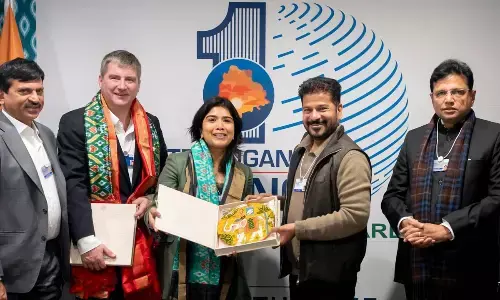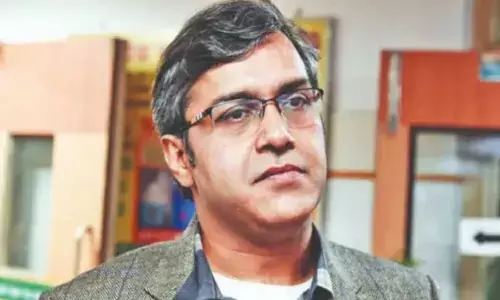A social taboo in India
 A social taboo in India
A social taboo in IndiaFor many couples - Parenthood is a dream and until quite recently in India, the trend was to get married early and have your first child by the age of 25.
However, due to socio-economic changes in the 21st century and greater development of interest in some of the significant factors such as education, career, and financial settlement, there is a delay in parenthood - with most women especially the ones who are planning their first pregnancy after the age of 30 due to career priorities.
In India, having children is considered to be the social norm and being childless relates to the social stigma. Infertility continues to have a profound effect on the psychological as well as social well-being of women, as compared to men across the country.
Global statistics have shown that one in every six couples suffers from infertility, yet the subject is still a major taboo in India. As per one of the recent research statistics, it is found that 27.5 million couples are suffering from infertility problems.
Indian Society of Assisted Reproduction has recently specified that up to 14 per cent of the Indian population is affected with reduced fertility levels. The statistics are indeed an alarming one. In fact, experts have specified that social taboo associated with infertility treatments pose to be a significant restraint for the growth of the infertility market.
Societal taboos make a woman prevent herself in finding the right infertility specialist who can counsel and guide her in the respective treatment journey. Cultural, religious, and social factors contribute greatly towards the lack of awareness regarding fertility, social stigma, and hesitance that surrounds it.
As opposed to being considered a disease that needs addressing and treatment - infertility is looked upon and talked of like a matter of personal inadequacy. Couples often feel ashamed to talk about the struggles they have faced with fertility aspect of their health and many a time hesitate in consulting the right specialists, who can help them in finding suitable options for the treatment of infertility issues.
Infertility in India is not merely a biological issue but also a social one - wherein the silence and stigma that surrounds the topic is mostly due to the misinformation that prevails in the Indian society. The problem is not just limited to rural areas, even urban and developed areas in the country are rife with superstition and misconceptions regarding infertility.
Infertile women are deemed to be inauspicious and unlucky and in most cases are ill-treated, rejected or abandoned by their family and society. It is this cultural and social stigma, due to which infertility is often hushed up, to maintain one's social image.
The most common advice that is doled out by parents is to not talk about the tabooed topic or even seek help, as societal pressure may often render infertile couples as social outcasts. When it comes to familial and societal support, there is a huge dearth of it for couples experiencing childlessness due to infertility issues.
This culture of silence and secrecy that we have allowed to fester and perpetuate around the topic of infertility, is what lies at the core of the obstacles that infertile couples have to face. Lack of proper information and guidance on the subject of reproductive health and fertility care means that couples often do not realise the existence of fertility issues until it's too much late.
This also delays the diagnosis of infertility problems in the respective couple to a great extent, thus impacting the commencement of the treatment. For couples who decide to undertake treatment or are on their journey of conception, they might find the entire process daunting or isolating, due to lack of a support system that they can lean upon.
The solution to this conundrum doesn't like in simply spreading information about sexual health, safe sex, or contraception alone. There still is a huge lack of awareness when it comes to reproductive health and infertility, in both the rural and urban sphere of the country.
Infertility specialists practicing at the top infertility centres can contribute to counseling patients to bring awareness among them for a better approach to their case. Until and unless the medical community addresses the problems transparently and the issue is talked about with a positive focus on the present situation of the couples - fertility care will probably not be able to make much headway.
One can take the example of breast cancer to see how the right kind of marketing and activism, goes a long way in promoting awareness and reducing social stigma, leading to better diagnosis and timely treatment of the concern.
Infertility is a difficult problem for couples, however, there is no reason to abandon hope. Instead of letting the taboo perpetuate, helping couples cope by spreading correct information, discussing the topic with sensitivity and empathy, as well as providing a supportive environment, where they feel comfortable to air their concerns, can go a long way in de-stigmatizing the issue.
This, in turn, actually help couples with conception as opposed to perpetuating the age-old hushed tones, accusatory glances, and social taboo that has surrounded the topic of infertility in India for eons.
Infertility treatments such as IUI, IVF, and Surrogacy procedures are performed under the guidance of the infertility specialists which have evolved in the present times has helped couples positively deal with infertility issues, thus helping them seek the happiness of parenthood. This is bringing an end to the social taboo present with infertility issues among couples and Indian society.
- The writer is a Co-Founder & CEO, ElaWoman

















